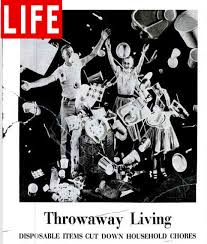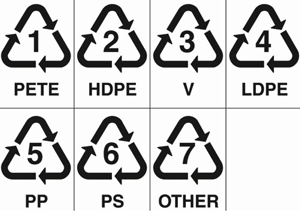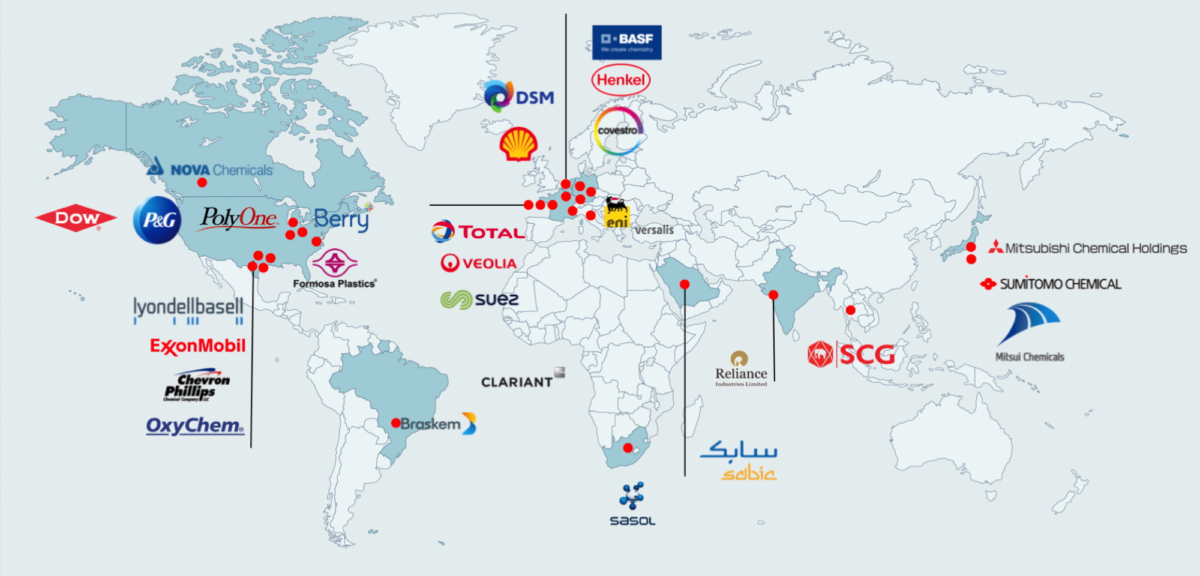13 Facts you Might not Know About Plastics
2. Plastic was originally marketed as freeing women from household chores like washing up- because single-use plates meant they could just be thrown away.
4. These signs were not designed to tell customers which plastics can be recycled. They were created by the plastics industry in 1988 as a way of classifying the hundreds of plastic types- it’s no wonder plastic recycling is confusing!
6. The current backlash against single-use packaging isn’t new. In the USA, in the 1970’s, there were protests against throwaway containers, following the move away from reusable. However, the organisation ‘Keep America Beautiful’ turned the responsibility back to consumers with their campaign ‘People start pollution. People can stop it’. Turns out that Keep America Beautiful was a campaign started and funded by the packaging industry. Read more about The Crying Indian Ad that fooled the environmental movement.
7. Fast forward to 2019, and the Plastics Industry created a new body called ‘The Alliance to End Plastic Waste’, whilst simultaneously an anticipated $200 billion will be invested in the US petro-chemical industry according to Wood Mackenzie Chemicals.
9. Compostable plastics do not decompose if they become litter or end up in the oceans- they need to be heated to 60’ for 90 days in a composting facility that has previously agreed to accept them.
10. The definition of a bio-plastic is one made plants or one that biodegrades e.g. a compostable plastic. However this also means that oxo-degradable plastics, which are made from oil are classified as bio-plastics. This is because they break down when exposed to oxygen and sunlight, although they actually end up as micro-plastics. Thankfully they are being banned by the EU in 2020.
And now for something positive (wooo hoo)……
11. The Ellen MacCarthur Foundation has 350+ packaged goods companies, raw material producers and governments wouldwide sign up to the New Plastics Economy thus far. They have all committed to: E
- Eliminate all problematic and unnecessary plastic
- Innovate to ensure that the plastics we do need are reusable, recyclable, or compostable
- Circulate all the plastic items we use to keep them in the economy and out of the environment
12. The UK Plastics PACT, a voluntary scheme of manufacturers, supermarkets, producers and NGO’s have pledged to ban the sale of 8 problematic plastics before the ban for the same items come into effect in the EU:
- Disposable plastic cutlery
- All polystyrene packaging
- Cotton buds with plastic stems
- Plastic stirrers
- Plastic straws
- Oxodegradables that break down to create microplastics
- PVC packaging
- Disposable plastic plates and bowls
13. The UK Government is proposing a tax on plastic packaging that doesn’t contain 30% recycled content. This is to stimulate the recycled plastic industry in the UK by encourage packaging to be made from recycled plastics.



10% of all online courses go to grassroots charities.
20% of all consultancy and bespoke workshops go for rewilding.
50 free places are awarded to campaigners from underrepresented communities each year.



